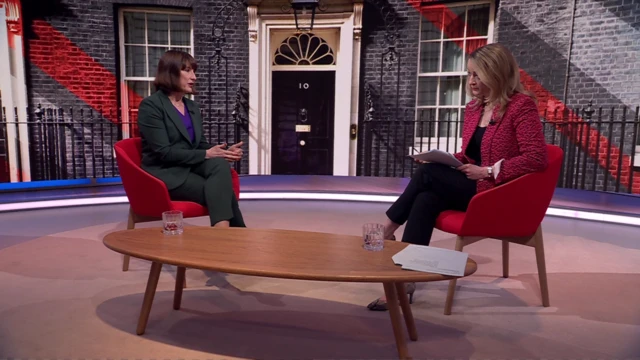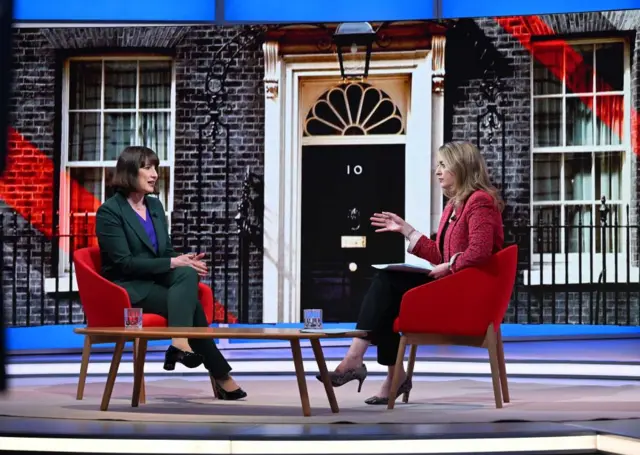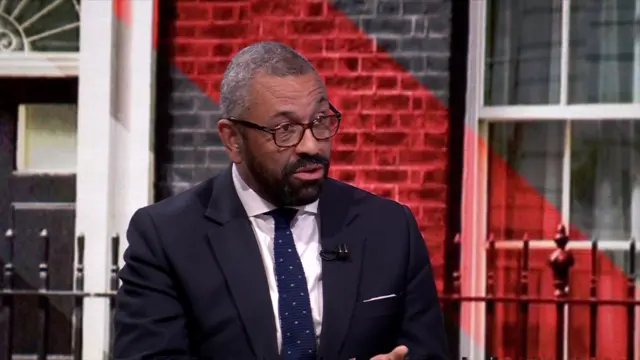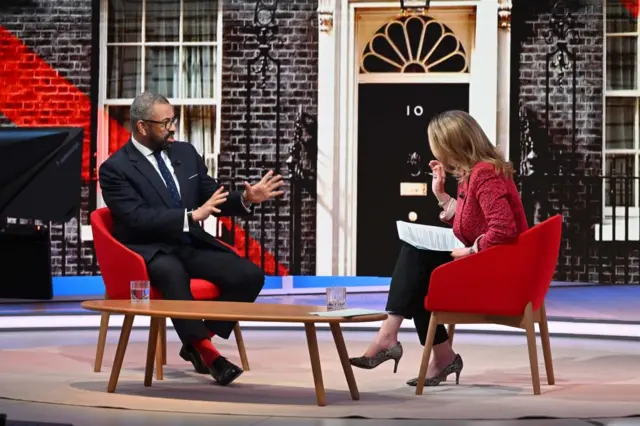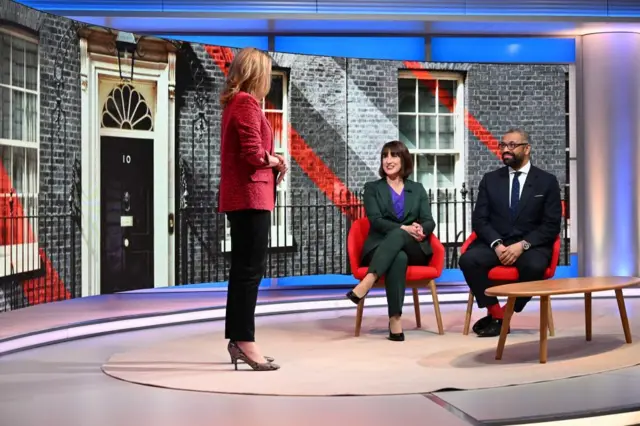Reeves pushed on zero hours contract banpublished at 10:07 BST 26 May 2024
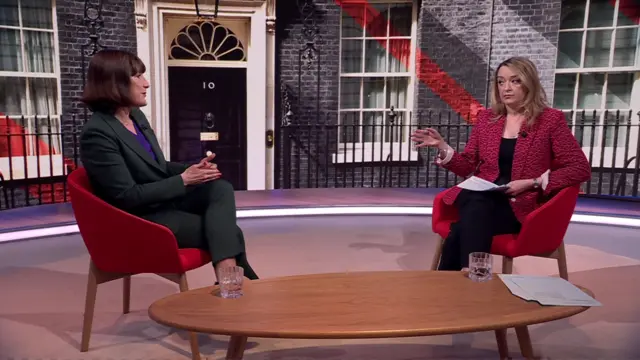
Another topic broached before the end of the shadow chancellor's interview was workers rights.
Laura asked Reeves about Labour's commitment to have an outright ban on zero hours contracts, adding that under the plans firms could still fire and rehire.
Reeves said Labour would end fire and rehire practice, but if a company was facing bankruptcy it would have to consult its workers and their unions.
Reeves said Labour has the support of trade unions, adding that the Labour government would bring back that legislation in the first 100 days.
